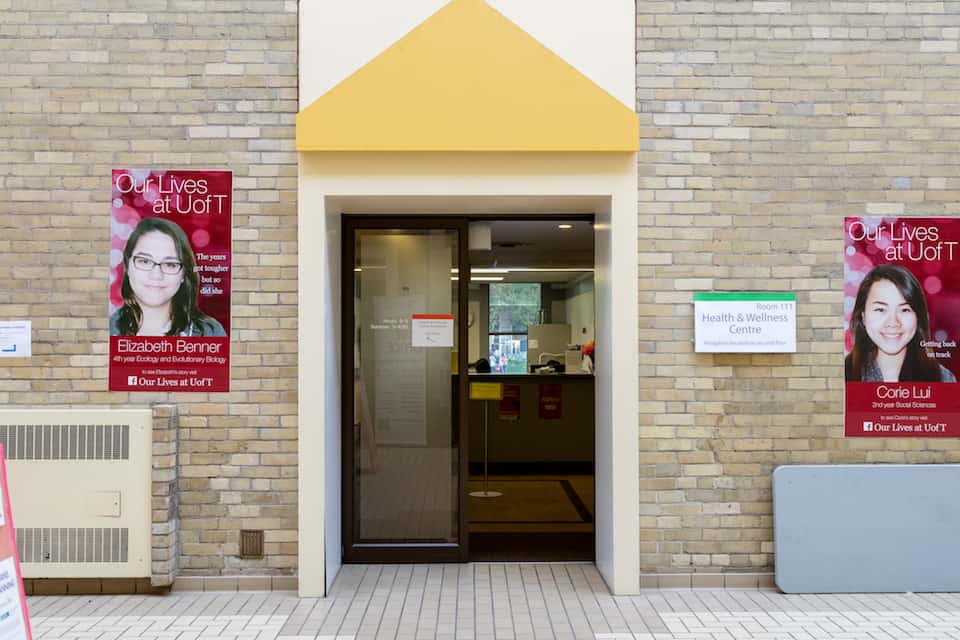Mental health services at the University of Toronto have long been the cause of widespread student dissatisfaction. At the beginning of the fall semester, Counselling and Psychological Services (CAPS) merged with Health & Wellness in an attempt to improve the quality of mental healthcare on campus.
A positive reception
Health & Wellness executive director Janine Robb believes that the organization is well on its way to accomplishing its goals of an improved experience for students. “What has happened is we are having staff which were previously fairly separated by the floors who are now communicating to each other face to face, through the electronic medical records, and also through clinical conferences that occur weekly,” Robb said.
Maria*, a third-year undergraduate student who previously faced difficulties with the CAPS system, was tempted to agree. “I’m much more satisfied with the service that I am receiving compared to the first time I tried accessing CAPS. The kind of care I am receiving now is the kind of care I wish my first-year self had, but I am glad I am receiving it now, rather than before when I had nothing.”
Javier,* a third-year student, had a similarly positive experience. “[A]s a service to renew and issue prescriptions and give cursory psych evaluations, it’s really quite good,” he said.
A large part of the new, integrated system has been the inclusion of other medical professionals in the treatment process. Maria recalled, “First, I was signed on for a 30 minute consultation with a nurse, then I took a series of questionnaires, saw a registered physician, and then immediately afterwards, I was signed on for an anti-depressant, a series of therapy workshops and counselling with the team located on the first floor.”
Robb underscored the importance of this new assessment process: “Everyone who presents [themselves] goes on to the nursing staff, who then determine whether we have the resources to refer them: either to mental health or to primary care. Typically we’ll refer them to a [general practitioner].”
“It’s important that everyone have a GP because we want to make sure their physical health is not contributing to mental health difficulties. Not only the interventions we offer as a continuum, but the resources and use of our staff are along the continuum as well.”
Does the new system help with wait times?
A common complaint about the former CAPS system was long waitlists. “I tried using CAPS back in my first year, but ultimately, the time between my initial consultation and the follow up took so long that I wasn’t able to receive the care that I needed,” said Maria.
“I applied in March and only got my assessment in May,” recalled Anton*, another student who has experienced both the old system and the integrated model. “After I returned from the summer in September, I was told I had to wait two more months before a slot would be available.” He expressed doubts that the waiting time has improved under the new Health & Wellness system.
Robb believes that the issue of waiting times has improved. “I honestly think we have managed to reduce wait times because everyone gets seen,” she said. She also noted that urgency is taken into account when determining how a patient will be treated.
Javier, who only recently sought out treatment for his mental health issues, seemed to agree. “I had my request for an immediate appointment accommodated and was very impressed by that.” He also spoke highly of the online application system.
Maria’s account of the new process was also positive. “It took a month between first going to Health & Wellness and actually getting an appointment, but afterwards, receiving care has been quick and streamlined.”
Alternatives
U of T’s Health & Wellness program offers a wide range of services for students outside of mental health issues including general medicine, immunizations, flu clinics, allergy care, and even support for smokers trying to quit.
One alternative for students with mental health problems is the OISE Psychology Clinic. Students completing their practicum for their masters of psychology staff the clinic under supervision by registered psychologists. The initiative provides both assessments and psychotherapy. Availability and wait times vary there as well, but the clinic offers its services free of charge for U of T students, though it receives no funding from the university to do so.
*Names changes at students’ request.


